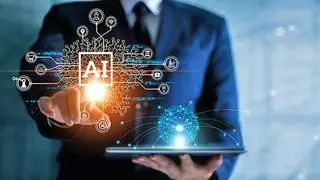Given the fact that the G20 comprises 20 of the world’s largest economies, which represent around 85 per cent of the global GDP, over 75 per cent of international trade, and about two-thirds of the world population, assuming its presidency for a year, starting December 1, is a significant development for India.
India will join a small group of developing nations, which includes Mexico, China, Argentina, Saudi Arabia and Indonesia, that have assumed presidency of the group since the G20 started its annual apex-level summit after the 2008 global financial crisis.
What makes India’s presidency even more special is the fact that for the first time, the ‘Troika’ will comprise only developing nations. At the G20, the member holding the rotatory presidency every year, works together with its predecessor and successor, together known as Troika, to ensure continuity of the agenda. Currently Italy, Indonesia, and India are the Troika countries. When India assumes the presidency next month, it will be part of the Troika with its predecessor Indonesia and successor Brazil.
This will provide it the unique opportunity to look at developments from the perspective of the developing world, turning the tables on the developed country members that have largely set the tone of discussions at the G20.
So, all important issues that the G20 is focused on, be it food security, rising interest rates, indebtedness among some developing countries, the digital economy or climate change, is likely to be viewed keeping its effect on the poor and the vulnerable strongly in consideration.
How challenging will this leadership be given the ongoing Russia-Ukraine war and the divide between members on this issue?
Assuming leadership of the G20 at a time when the Russia-Ukraine war is continuing to wreak havoc on the global economy, disrupting supply chains and creating shortages of food and other essentials, will not be easy for India. The fact that member countries continue to be split over the sanctions to be imposed against Russia, has made the situation more complex. However, India’s decision to stay diplomatically close to the developed countries, such as the US, the UK, the EU, Japan and South Korea, who are calling for increased action against Russia, while continuing to maintain strong trade ties with Moscow, puts it in a unique position of communicating smoothly with both sides.
India could take advantage of this position of closeness to all sides to bridge the gap to the extent possible and get things done at the G20.
What are the main areas that Modi will focus on during this presidency?
As the G20 president and part of the `Troika of developing countries ’, Modi, apart from focussing on areas of immediate concern such as food and energy security and climate, is expected to push issues that would positively affect poorer nations.
Indonesia has made a beginning by working in areas such as innovation, empowering MSMEs and vulnerable groups, and collaboration between developed and developing countries.
India’s G20 priorities, as stated by the government, are inclusive, equitable and sustainable growth, women’s empowerment, digital public infrastructure, and tech-enabled development, climate financing, global food security and energy security, among others.








Comments
Comments have to be in English, and in full sentences. They cannot be abusive or personal. Please abide by our community guidelines for posting your comments.
We have migrated to a new commenting platform. If you are already a registered user of TheHindu Businessline and logged in, you may continue to engage with our articles. If you do not have an account please register and login to post comments. Users can access their older comments by logging into their accounts on Vuukle.